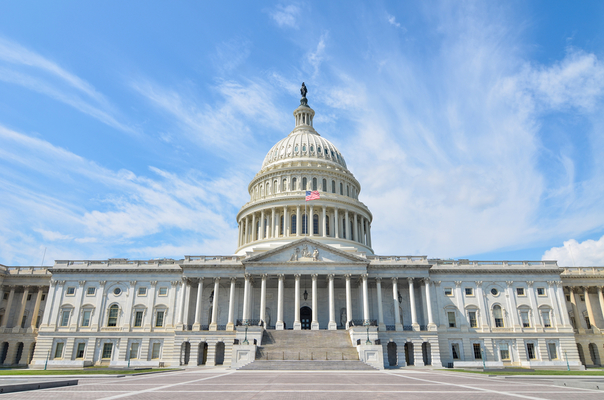George Will wrote an article last week in which he makes a compelling case for Congressional term limits at the national level.
Congressmen, he says, are increasingly reticent to stand up to executive power, and nothing proves this more clearly than the President's recent decision to, essentially, bypass Congress and launch airstrikes on Syria.
Though the idea seems counterintuitive, Will makes the case that term limits would actually motivate Congressmen to reclaim their constitutional authority and restore a balance of power at the federal level.
Instead of running for office year after year to maintain the perks of the job, term limits would encourage members of Congress to use their power while they have it. His lays out his argument below.
Obama is demonstrating in foreign policy what he has redundantly demonstrated in domestic policy — a supine Congress is superfluous to governance. Which makes this autumn ['s fierce midterm elections] surreal: Why are so many people so eager to serve in a negligible Congress? Professor Greg Weiner of Assumption College suggests an answer:
“Aristotle teaches that no one becomes a tyrant to get in out of the cold; in contemporary terms, no one runs for president for the upmarket house and the jet airplane. But increasingly, there is evidence that members of Congress do seek office for something other than the power, for power is something with which they are not merely willing but often eager to part.”
This reinforces Congress’s selfmarginalization: Congress increasingly attracts people uninterested in reversing its institutional anemia. They are undeterred by — perhaps are attracted by — the fact that they will not be responsible for important decisions such as taking the nation into war. As Congress becomes more trivial, its membership becomes less serious. It has an ever-higher portion of people who are eager to make increasingly strenuous exertions to hold offices that are decreasingly consequential. To solve the braided problems of “a proconsular presidency or a quietistic Congress,” Weiner advocates congressional term limits:
Supposedly, “members of Congress who serve longer are more competent, confident and therefore likelier to stand up to the president.” But “something has gone wrong with Federalist 51’s assumption that members of Congress seek office for power and not perquisites. . . . The privileges of permanent service too gravely swell the stakes of staying” and “supply reasons for serving other than exercising power. . . . Members of Congress who serve for brief periods will have . . . every political reason for taking up the power available to them while they can. . . . Members so situated will be likelier to defend their branch as a branch.”
Of course, Congress will never impose term limits on themselves, and it would be naive and unreasonable to believe so. Fortunately, Article V gives the states a means to bypass Congress and ratify a constitutional amendment placing term limits on members of the House and Senate.
The Convention of States application specifically mentions term limits to ensure attendees of the convention discuss and vote upon this important measure.
For more information on the Convention of States process and how it would help our country, visit our Learn page or watch this video.






